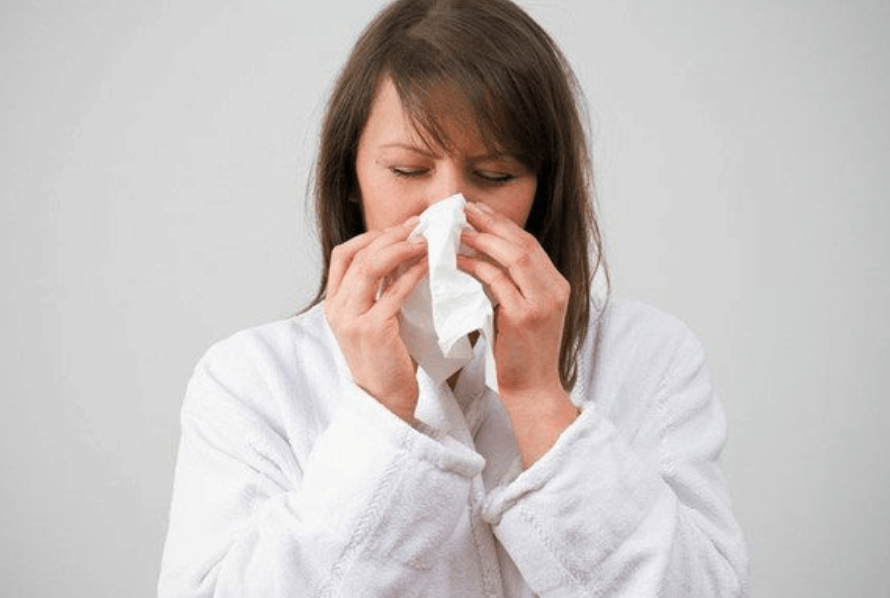
It's the season of allergic rhinitis. The culprit is "pollen", but you may not know that allergic rhinitis is also related to what you eat. If you don't shut up, allergenic foods will "add fuel to the fire" and aggravate allergy symptoms.
This is the root cause of allergies
This allergic rhinitis seems to touch it is difficult to good, every year, some people are allergic to spring pollen, some people are allergic to autumn pollen, and some people are allergic all year round. Sometimes take some medicine is better, do not take medicine again, do not know when it is the end, always can not break the root.
Itchy nose, stuffy nose, sneezing, runny nose, pain; Sometimes there will be tears, red eyes have a burning sensation, eyes, ears, throat, hard palate and other places itch. And the allergy is more and more serious, the original may only be autumn allergy, and later developed to spring allergy; It turned out to be sneezing, runny nose, congestion, and then itchy and watery eyes.
Allergic rhinitis can not break the root, because the current treatment is mostly anti-allergic symptomatic treatment, effective medicine, stop the drug relapse. Allergic rhinitis identify the allergen, avoid contact with the allergen is the cure.
Some people say that I know the allergen, but I can't avoid it, pollen is in the air, unless you don't breathe, you can't avoid the allergen.
Pollen is to blame as is food
If you ask the little brother who is in pain from the paper, do you know what causes allergic rhinitis? He will be very dismissing you at a glance, of course, know, this season's unique pollen, look at the pollen forecast to know, now is the peak of wormwood pollen, immediately humulus pollen peak should also come, where are all, hiding no place to hide, really want to dig a hole into the ground to go.
Yes, 98% of people think it's pollen, and yes, pollen is the main cause of allergic rhinitis. But putting all the blame on pollen is a bit unfair, and what most people don't know is that there is a driving force behind pollen, and this driving force is food allergies.
Most chronic allergies are combined, as is allergic rhinitis. There are also hidden ingestive or other allergens behind wormwood allergy, and 70% of the symptoms of food allergy are manifested in the respiratory tract.
In other words, pollen is only one of the causes of seasonal allergies, and many people often have food allergies.
This type of food allergy is so atypical during the non-allergic season that most people don't feel it at all. During the allergy season, allergic rhinitis symptoms will be significantly aggravated if you eat allergic foods and come into contact with allergic pollen.
So if you can identify the food you're allergic to and avoid it in advance, or at least during the allergy season, the symptoms of allergic rhinitis can be greatly alleviated, even to the point where you can tolerate it without taking medication.
You can do this by picking out allergenic foods
Food allergies can be acute or chronic. Acute food allergies are easy to identify, and symptoms such as swollen lips or a rash after eating shrimp can appear immediately after eating a food to which one is allergic.
Chronic allergies, on the other hand, are subtle and have a variety of symptoms, not limited to rashes and rhinitis, often appearing hours or even days after eating, and are very atypical and sometimes difficult to recognize.
So the question is, how do you find out what you're allergic to? One is to have a pair of sharp eyes, to be a caring person in daily life, when there are allergy symptoms, to consider whether it is related to food, like Sherlock Holmes to find out the responsible food.
In addition, blood can be drawn to test the IgE and IgG antibodies of the corresponding food to find the allergen.
Identifying the allergen and avoiding it is a cause treatment that gets to the root of the problem. Of course, there is also a lot of knowledge about how to avoid allergens, and it is not as simple as "avoiding contact" as mentioned above.
There is also a treatment for desensitization treatment, desensitization treatment can indeed solve some people's allergic rhinitis, but this method also has certain limitations: First of all, for the allergen is relatively simple, such as only wormwood allergy, then only need to desensitization treatment of wormwood. But if the allergen is complex, it's harder to execute and less effective; Secondly, desensitization treatment takes a long time, generally to be treated for more than 3 years, during which every week to treat, stick to it also requires perseverance.

